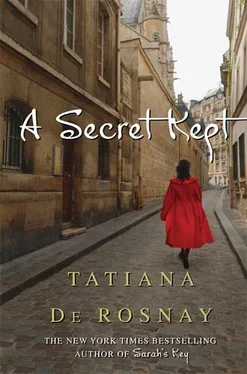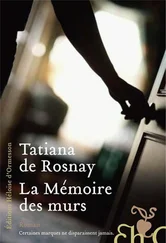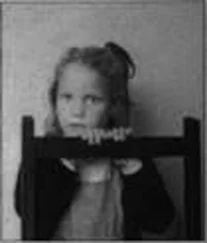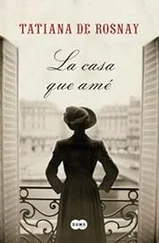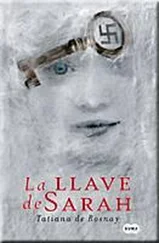In a sort of daze, I follow her to a nearby consulting room. The hospital seems empty, silent; I feel as if Dr. Besson and I are the only ones around. She tells me to sit down, rolls up my sleeve, checks my pulse. As she gets on with her work, I remember lifting myself out of the car, which was resting on its flank like a wounded animal. Mélanie was hunched up in the far left corner, motionless. I couldn’t see her face. The air bag had blown up over it. I remember calling out to her, yelling her name at the top of my lungs.
After a while Dr. Besson tells me I am fine, with slightly high blood pressure. “You can stay here tonight. We have rooms for next of kin. The nurse will come.”
I thank her and leave, heading back to the hospital entrance. I know I have to call our father. I have to tell him what happened. It cannot wait any longer. It is nearly midnight. I step out of the building and light a cigarette. The parking lot in front of me is deserted except for a couple of smokers. The town seems asleep. Above me, the sky stretches dark blue. Stars twinkle. I sit down on a wooden bench. I finish the cigarette and toss the butt away. I try the home number on the avenue Kléber. The answering machine with Régine’s nasal whine comes on. I hang up and try his mobile phone.
“What is it?” he barks before I can pronounce a single word.
I relish the small power I now have, the tiny power I can at last wield over our aging, domineering, tyrannical father, my father who still makes me feel twelve years old and useless in every way, who disapproves of my job as a mediocre, unexciting architect, my recent divorce, my smoking, the way I bring up my kids, my haircut, which according to him always leaves my hair too long, the fact that I wear jeans and not suits and never ties, my non-French car, my sad new apartment on the rue Froidevaux overlooking the Montparnasse Cemetery. The pleasure I glean from this is as sharply sweet as a quick jerk-off under the shower.
“We had an accident. Mélanie’s in the hospital. She’s broken something in her back, and they had to operate on her spleen.”
I savor the swift intake of his breath.
“Where are you?” he finally gasps.
“The hospital at Le Loroux-Bottereau.”
“Where the hell is that?”
“Twenty kilometers from Nantes.”
“What are you and Mélanie doing there?”
“We went on a little trip for her birthday.”
A pause.
“Who was driving?”
“She was.”
“What happened?”
“I don’t know. The car just drove off the highway.”
“I’ll be there in the morning. I’ll take care of everything. Don’t worry. Goodbye.”
He hangs up. I groan inwardly. Him, here, tomorrow. Bossing the nurses around. Being respected. Looking down at the doctor. Our father is no longer a tall man, but he still feels that he is. When he walks into a room, faces turn to him like sunflowers to the sun. Nor is he particularly good-looking: receding hairline, bulky nose, glaring dark eyes. He had been, in his youth. I’m often told I look like him, same height, same brown eyes. But there is nothing bossy about me. He has gotten stout. I noticed that the last time I saw him. Which was six months ago. We don’t meet much anymore, and now that the children are old enough to visit their grandfather without me, I see him even less.
Our mother died in 1974. Since then, Mélanie and I have spoken of her by her first name. Clarisse. It seemed too hard to say Maman. Aneurysm. François-yes, that is our father’s name, François Rey, does it not ring out with true authority and grandeur?-was only thirty-seven when his wife died. Six years younger than I am now. I cannot remember where and when he met the blond, thin-lipped, ambitious Régine (an interior decorator), but I do remember the pompous wedding in May 1977 at Robert and Blanche Rey’s apartment overlooking the Bois de Boulogne, and how dismayed Mélanie and I had been. Our father did not seem in love at all. He never glanced at Régine, had no tender gestures toward her. So why was he marrying her? we wondered. Because he felt lonely? Because he needed a woman to look after his bereaved household? We felt betrayed. There Régine was, all of thirty, simpering in a beige Courrèges suit that did nothing for her behind. Oh, yes, she had made a good catch. A widower, but a wealthy widower. One of Paris’s most brilliant lawyers. Heir to a well-known, respected family, his father a renowned lawyer, his mother the daughter of a famous pediatrician, granddaughter of a wealthy property owner, the crème de la crème of the demanding, conservative, Right Bank Parisian bourgeoisie from Passy. A superb apartment on the bon chic bon genre avenue Kléber. The only hitch was two children of thirteen and ten who were still stricken by their mother’s death. She put up with us. She took it all in her stride. She redecorated the apartment, transformed its splendid Haussmanian proportions to ultramodern square white spaces, gutted the fireplaces and stucco, ripped up the old, creaking floorboards, and turned the whole thing into a maroon and ash decor that looked like an airport boarding gate. All their friends thought it was the most audacious and clever makeover they had ever seen. We hated it.
She raised us in that stiff, traditional bourgeois French way. Bonjour, Madame. Au revoir, Monsieur. Impeccable manners, excellent results at school, Mass every Sunday morning at Saint-Pierre de Chaillot. Emotions of any sort were kept in check. Children were seen and not heard. Never talk about politics, sex, religion, money, or love. Our mother’s name was never uttered. We soon understood that we were better off not pronouncing it. We never talked about her death either. Or anything whatsoever concerning her.
Our half sister, Joséphine, was born in 1982 and became our father’s favorite. There was a fifteen-year difference between Mélanie and her. And I, at just eighteen, was sharing a place on the Left Bank with a couple of friends and studying political science at the rue Saint-Guillaume faculté.
I had left home-that is, if the avenue Kléber and what it had become since Clarisse died could ever be called home.

I wake up the next morning feeling stiff all over. The bumpy hospital bed is the most uncomfortable thing I’ve ever slept on. Had I even slept? The thought of my sister looms. Is she all right? Will she pull through? I look across the bare room at my suitcase and my laptop in its special bag. They got through the accident unscathed. Not even a tear or a scratch. I tried the computer before I went to bed last night, and it had switched on smoothly. How was that possible? I had seen the state of the car. I had been inside that car. And yet despite the wreckage, my suitcase, my computer, and myself are fine.
The nurse this morning is a different, plumper, dimpled one.
“You can see your sister now.” She beams. I follow her down a couple of corridors where half-asleep old people shuffle by, then up a flight of stairs into a room where Mélanie is lying on a complicated bed with all sorts of contraptions around her. Her entire torso is plastered from shoulders to waist. Her neck emerges, long and thin, like a giraffe’s. She seems taller and leaner than she actually is.
She is awake, her green eyes dark, smudged with shadows. Her skin is very pale. I have never seen her so pale. She looks different, I can’t quite understand how or why.
“Tonio,” she breathes.
I want to be strong, big brotherly, but the sight of her moistens my eyes. I daren’t touch her. I am worried I may break something, harm her. I sit down in the chair by the side of the bed, feeling gauche.
“Are you okay?” she mouths.
Читать дальше
